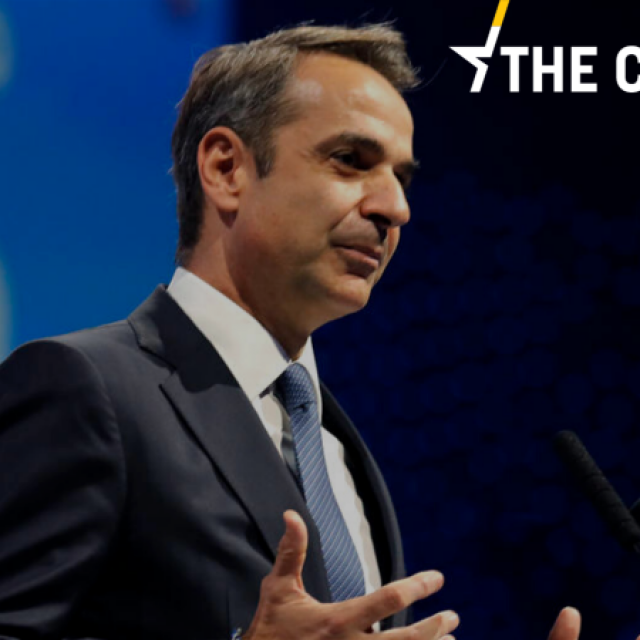![What will the COVID-19 passport be? [Shutterstock/Navistock]](https://static.jutarnji.hr/images/slike/2020/04/28/k_tourist-800x450%20(1)_640.png)
Before you start reading today’s edition of the Capitals, feel free to have a look at the article “EU leaders agree plans for ‘unprecedented’ stimulus against pandemic” by Jorge Valero.
To stay up-to-date on everything to do with the coronavirus across the capitals, feel free to check out EURACTIV’s comprehensive overview, which is regularly updated with the help of our network of offices and media partners.
EU INSTITUTIONS
EMA warns about chloroquine’s side-effects. US President Donald Trump recently touted anti-malaria treatments hydroxychloroquine and chloroquine as potential remedies for COVID-19. However, the European Medicines Agency does not share the same view and warns about severe side-effects from these drugs.
“Chloroquine and hydroxychloroquine are known to potentially cause heart rhythm problems, and these could be exacerbated if treatment is combined with other medicines, such as the antibiotic azithromycin, that have similar effects on the heart,” EMA said in a statement.
“Recent studies have reported serious, in some cases fatal, heart rhythm problems with chloroquine or hydroxychloroquine, particularly when taken at high doses or in combination with the antibiotic azithromycin,” the EU drug agency added.
In today’s news from the Capitals:
ATHENS. Greek Prime Minister Kyriakos Mitsotakis yesterday (23 April) called on the European Commission to come up with a plan to resume travel “as soon as possible”, according to Greek government sources.
Speaking at the EU Council, Mitsotakis reportedly said the EU single market is not there only to serve free movement of goods but also the movement of people.
“We need to reach common understanding as to movement of people,” he said, adding that backing tourism in Europe’s south is “demonstrable” support.
Contrary to her cautious approach in mid-April, European Commission President Ursula von der Leyen recently told Portugal’s SIC TV channel that she was positive about having a vacation this summer – in a “smart” way. For Greece, tourism accounts for around a fifth of its economy and more than a quarter of jobs.
Mitsotakis also backed the idea of a strong EU budget funded with a form of joint debt instrument. “It needs to have very long, if not perpetual maturities, to be front loaded, and more crucially, it needs to focus more on grants not loans.”
EURACTIV’s Network Editor Sarantis Michalopoulos has the details.
///
BERLIN
New aid package for workers, schools, and companies. Germany’s grand coalition of Christian Democrats (CDU/CSU) and Social Democrats (SPD) reached an agreement for an additional €10 billion aid package on Thursday (23 April). The funding will increase payments to workers in the country’s short-term work scheme, which hopes to incentivise companies to retain their employees during the economic downturn. The package also provides schools with an additional €500 million to speed up the transition to online learning. (Sarah Lawton | EURACTIV.de)
Read more: Germany agrees to more cash to shield workers, companies from coronavirus hit
///
PARIS
When will the lockdown end? Although France’s lockdown, which started on 16 March has spared 60,000 deaths according to a study underlining the positives of social-distancing since that day, many questions remain unanswered or unclear as France nears the end of confinement set for 11 May. EURACTIV France looks into why.
Also read: Macron: we need EU coronavirus rescue package worth 5-10 points of GDP
///
BRUSSELS
Relaxation, but only light? After the leak of the recommendations on the Belgian deconfinement measures, experts are predicting that many people could be disappointed by the exit strategy the National Security Council will announce later on Friday. Alexandra Brzozowski has the details.
///
LONDON
Scotland sets out ‘phased’ end to lockdown. Scotland will have to learn to “live alongside” the coronavirus, with some social distancing measures remaining in place into next year, according to a 26-page report on plans to phase out the lockdown measures published on Thursday (23 April). EURACTIV’s Benjamin Fox takes a closer look.
///
VIENNA
New law to exclude persons from events. The governing coalition of Chancellor Sebastian Kurz’s conservative ÖVP and the Greens presented to the parliament amendments to the country’s pandemic law, which would exclude “certain groups of persons” from events. Philipp Grüll reports.
///
HELSINKI
Investigation into possible ‘concentration camps’. Russia announced on Monday (20 April) that it will start an investigation into Finland’s actions in Karelia during the Continuation War. As an ally of Nazi Germany between 1941 and 1944 during the Second World War, Finland established several prison camps in the area now part of Russia. Pekka Vänttinen reports from Helsinki.






